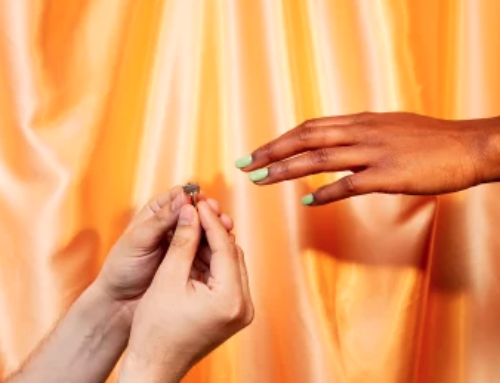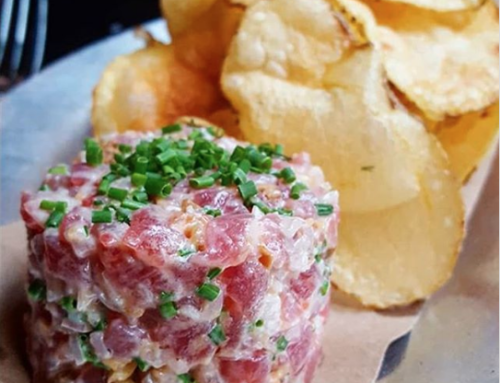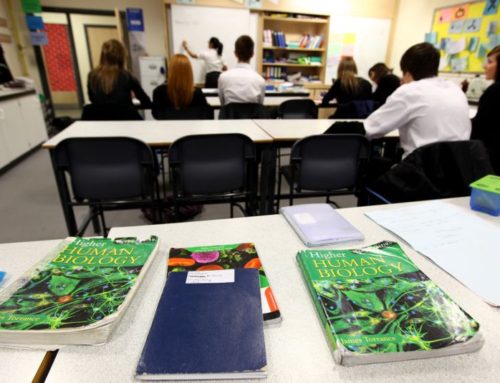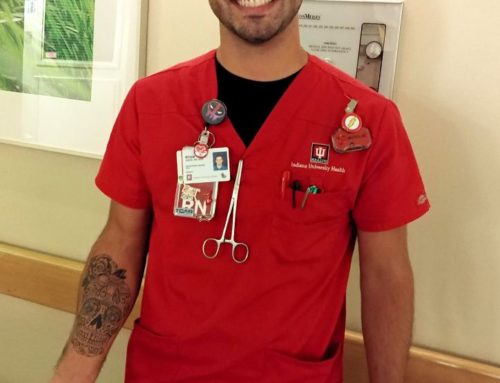
One-year-old PJ Reynafarje is happily unaware of the online bullies targeting his mom. (Photo: Courtesy Crystal Kouri)
From Yahoo Lifestyle, 1/2019
For 20 years, Crystal Kouri had a career making people beautiful on the outside as a celebrity hair and makeup artist. In the year since the birth of her son, PJ, she’s seen her life’s calling change to the complete opposite, showing the world what inner beauty looks like. Sadly, she’s also come to realize PJ and other children with facial differences like his can bring out a very vicious, ugly side of humanity, particularly online bullies.
“We get bullying types of comments all the time — rude, insensitive, hurtful comments, like, ‘That’s an ugly kid,’” Kouri tells Yahoo Lifestyle. “That’s fine with me. I don’t care. I brush it off all the time.”
But last month, she and other parents of special needs children received private Instagram messages with comments on an entirely different scale of horrifying. In a group thread titled “Business Enquiry,” Kouri and others read comments about wanting to kill their children, rape them or deface their corpses.
These messages came at a particularly bad time. PJ has a genetic mutation called Treacher Collins, which many people might be familiar with as the syndrome that the fictional character Auggie has in the book Wonder by R.J. Palacio and the movie by the same name. The syndrome affects the formation of the face, often leading to difficulties breathing, eating and hearing, but does not affect mental development. Two weeks earlier, before this online attack, a baby with Treacher Collins had died from breathing complications, heightening Kouri’s worries over PJ’s health.
“I couldn’t sleep, and I went to check my phone and saw that another mother posted that her baby just passed and she had no idea how she was going to tell her older children in the morning that their baby sister passed away,” Kouri tells Yahoo. “Then I went on Instagram and found all those messages.”
Kouri said she reported the threats to the police and on the FBI tip page.
“I have been told that they will only investigate when specific threats are made,” Kouri wrote on a video she posted to Instagram and Youtube this week. “So threats against children in general are dismissed?”
Though she admits these internet bullies are probably just trolls, Kouri says she couldn’t help but think of other times someone’s online threats proved to be real, such as in the case of Nikolas Cruz, who is charged with killing 17 people at Marjory Stoneman Douglas High School in Parkland, Fla.
She also reported the accounts to Instagram. According to the site’s Community Guidelines, Instagram removes “content that contains credible threats or hate speech, content that targets private individuals to degrade or shame them, personal information meant to blackmail or harass someone, and repeated unwanted messages.”
“Whether an account is removed or not depends on the severity of the violation and a person’s history on Instagram, including previous removals,” a spokesperson said. “For example, some content is so bad that posting it just once means we would remove the account immediately. In the case of other violations, we may warn someone the first time they break our Community Guidelines. If they continue, we may remove the account altogether.”
Facebook has doubled the number of people working on safety and security across all its products (including Instagram), the spokesperson said. Half of those are people who review the millions of reports like Kouri’s that they receive every week. Instagram also offers ways that people can filter out offensive comments from their posts — which Kouri did long ago — but if someone private messages a user, they might slip through the cracks. You can, however, choose to report and delete suspicious private messages from strangers without viewing them.
Rather than dwell on the online harassment, Kouri is focusing her attention on the positive things she has been doing to prevent bullying in the real world. They’ve raised about $60,000 in the past year to help other children with Treacher Collins, and the Children’s Craniofacial Association has certified her and PJ as “Wonder Speakers.” The mother and son read the Palacio picture book We’re All Wonders and answer questions about PJ’s differences to students from kindergarten through second-grade.
“The little ones are afraid of medical equipment and people who look different, and they just don’t understand,” Kouri says, though she says the kids’ response to PJ has been very positive. “You have to explain to them that it’s OK to be different.”
Rather than shelter her son, who has to be on a feeding tube and has had several surgeries in his short life, Kouri believes it’s important to take him out into their community. If they can teach younger kids now, she hopes that by the time PJ is old enough to be aware of people’s reaction to him, their responses will be kind and accepting.
“I feel like I have a very limited amount of time to do what I need to do to make his world a better place,” Kouri says. “Whatever schools we plan [for him] to attend, whatever schools are neighboring schools, I want to hit up all those schools and get them young, just to try to make a better environment for him and for everyone else too.”





